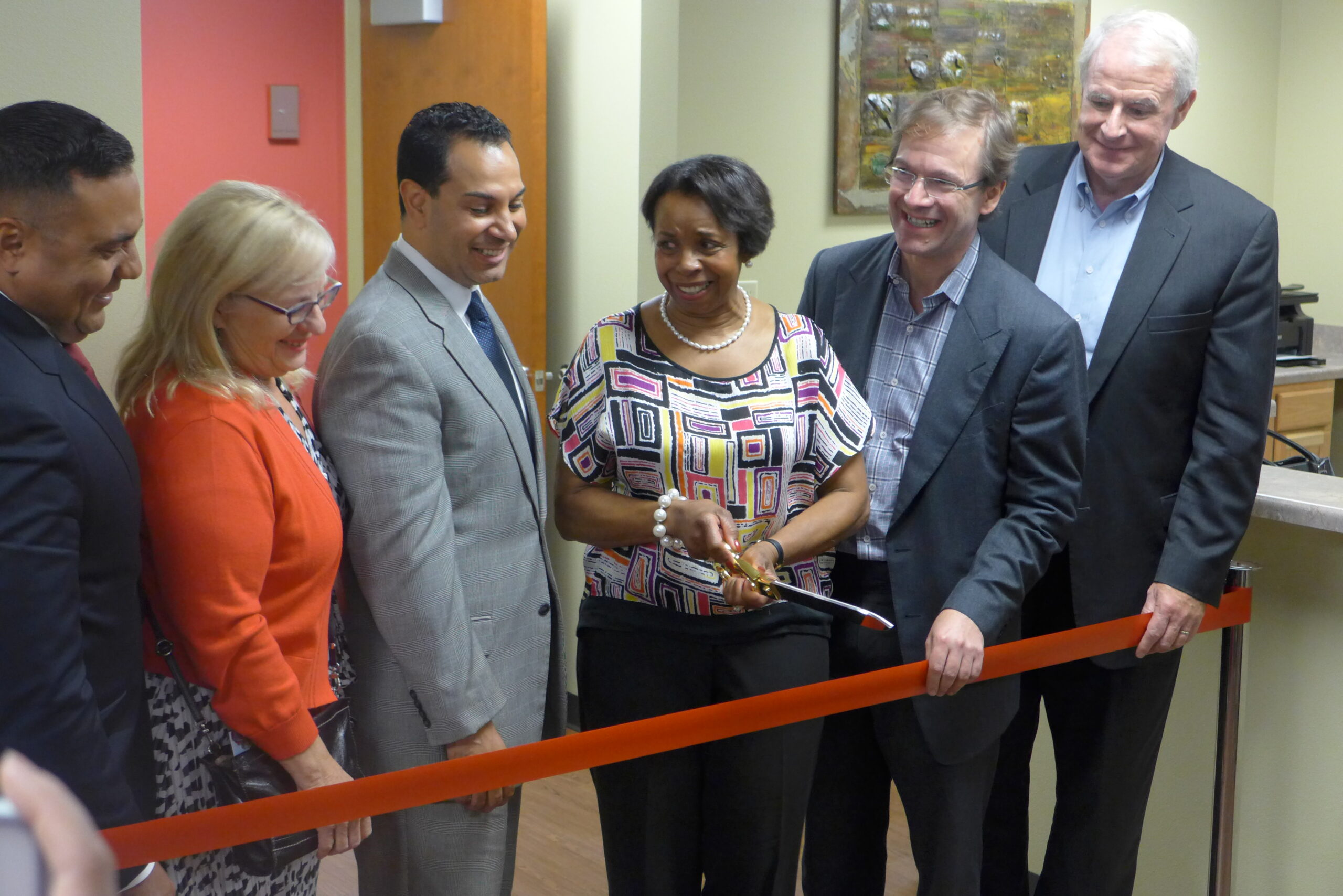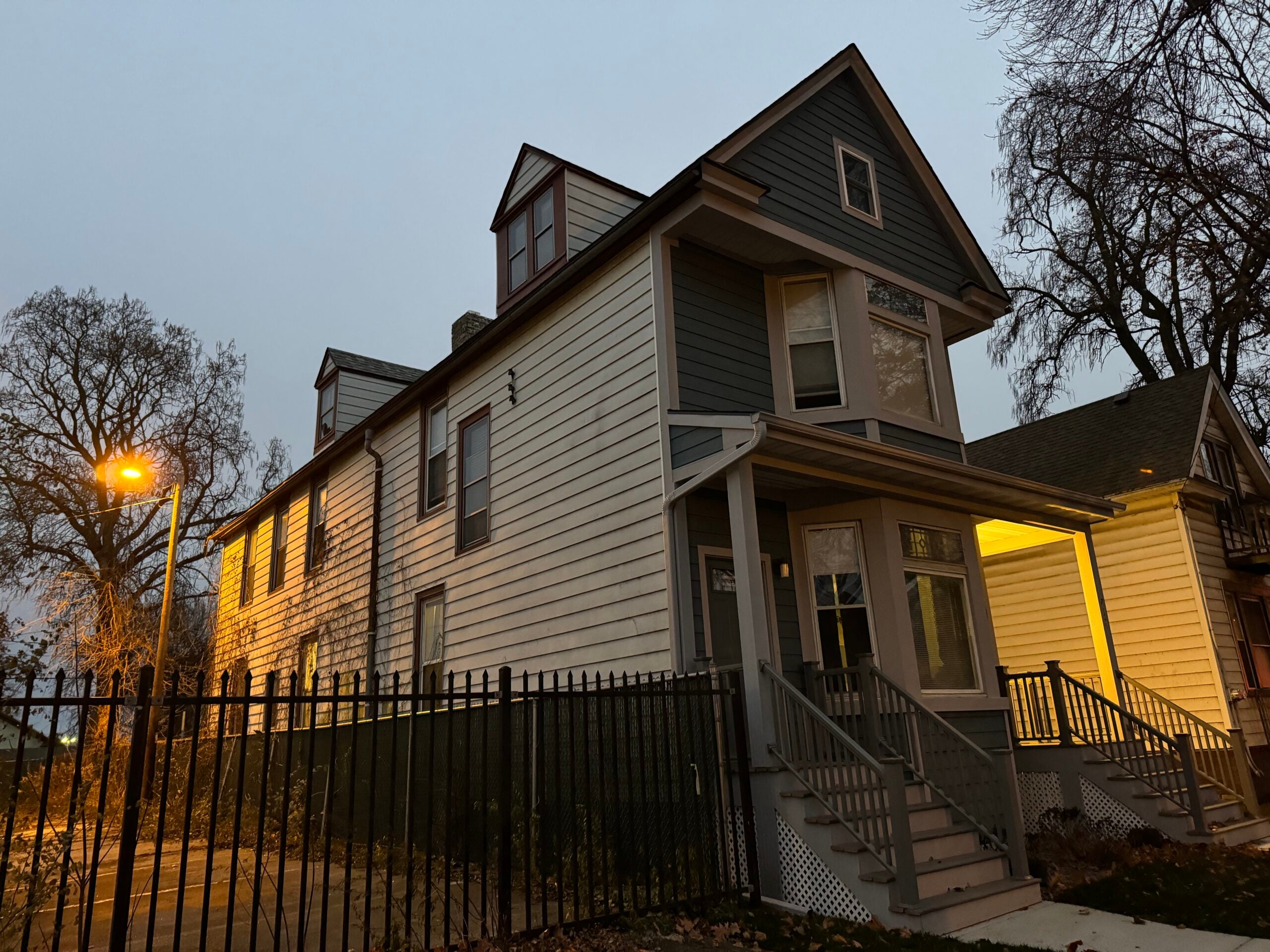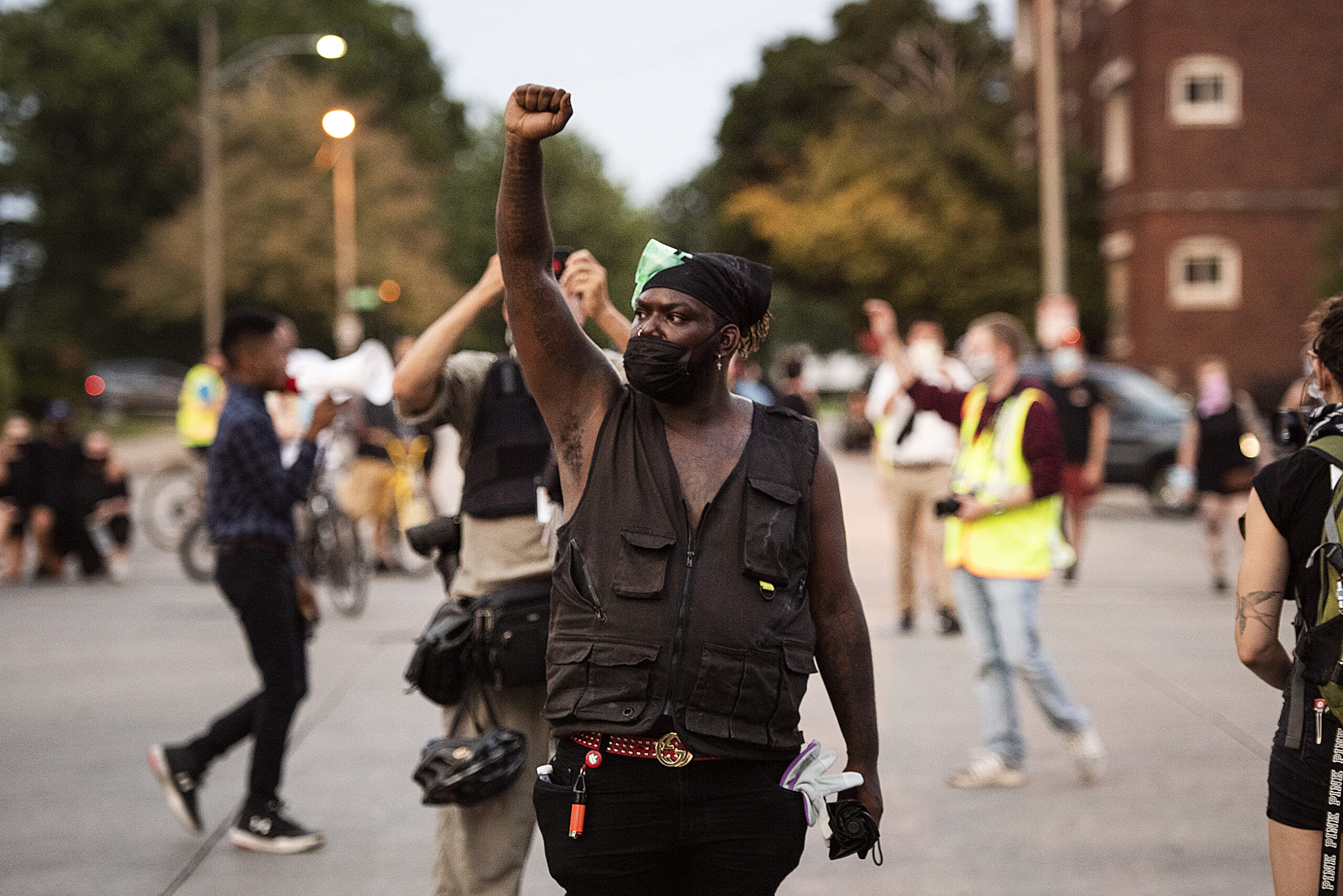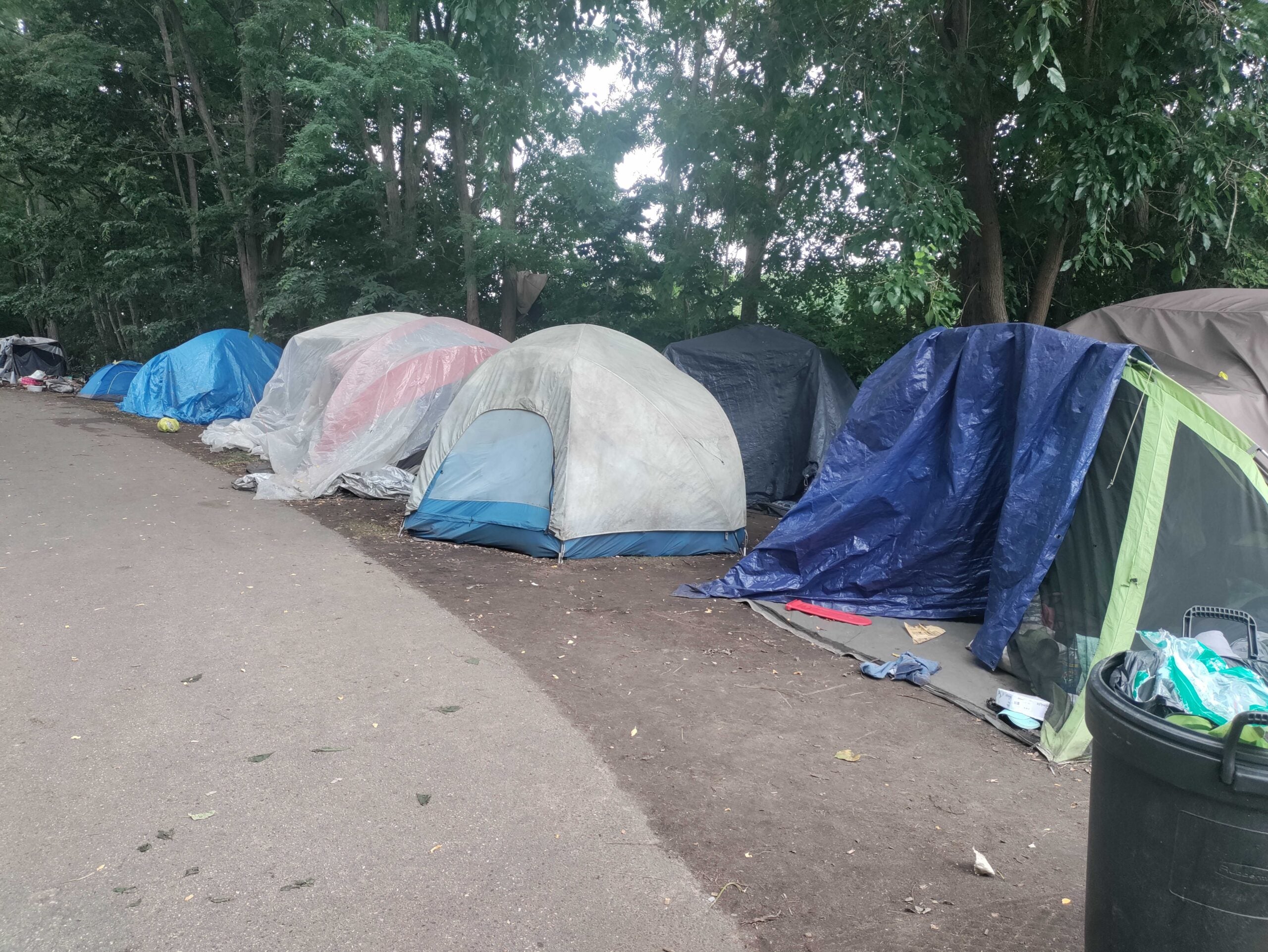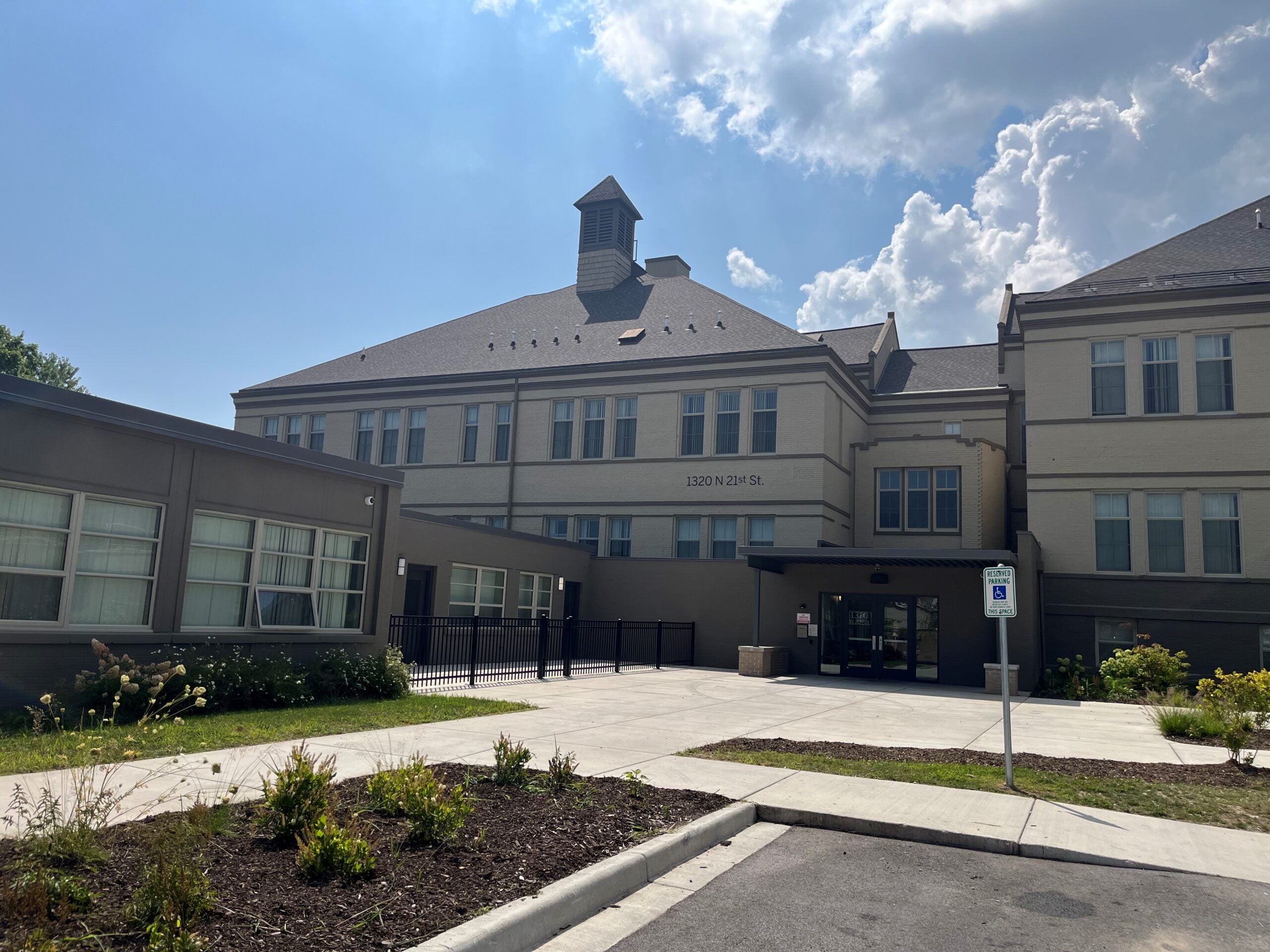Wisconsin’s first housing development for people struggling with chronic homelessness and alcoholism opened Thursday in Milwaukee.
Residents living in the 24 one-bedroom apartments will have access to on-site mental health and social services 24 hours a day, seven days a week.
The development, Thurgood Marshall Apartments, is named after the former U.S. Supreme Court justice.
News with a little more humanity
WPR’s “Wisconsin Today” newsletter keeps you connected to the state you love without feeling overwhelmed. No paywall. No agenda. No corporate filter.
Erich Schwenker, president of Cardinal Capital Management, which helped in the development the new building, said the way Marshall handled personal adversity makes him a fitting namesake for the building.
“As it works out, Thurgood Marshall turns out to be just an absolute wonderful choice for this building,” Schwenker said. “I’m hoping it’ll be an inspiration for everybody that lives here and participates here.”
A person is considered chronically homeless if they have been continuously homeless for a year or more or if they have been homeless four or more times in the past three years, according to the U.S Department of Housing and Urban Development.
Milwaukee County Executive Chris Abele said the county’s goal is reduce the number of chronically homeless people to zero by 2018.
Abele said that starts with a housing first approach which sees giving someone a place to live as the first step to treating addiction and mental illness. The Halyard Park neighborhood is embracing this effort, Abele said. He said he hopes the neighborhood can be an example for other communities.
“It’s pretty amazing,” Abele said. “When we made this announcement last year, some press folks asked, ‘Well, how does the neighborhood feel about it?’ To be able to say, ‘Why don’t you ask them, they’re right here?’ You know what the answer is – supportive.”
Wisconsin Public Radio, © Copyright 2026, Board of Regents of the University of Wisconsin System and Wisconsin Educational Communications Board.

